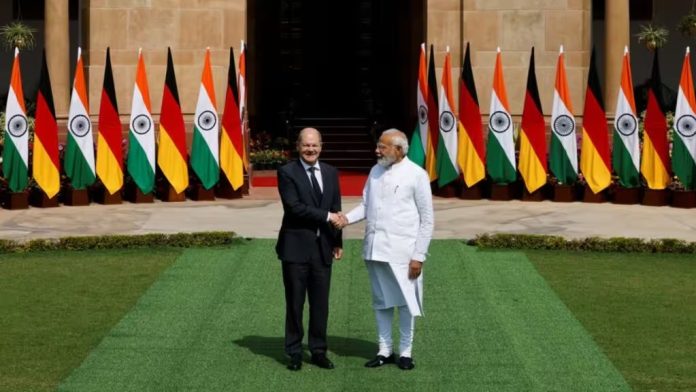Germany has recently made significant strides in bolstering military cooperation with India by easing export restrictions and facilitating defence procurement. This move signifies a paradigm shift in bilateral relations, highlighting India’s growing importance as a strategic partner for Germany.
What does this mean?
According to sources, “The relaxation of licensing requirements by the German government enables India to purchase small arms from local companies, a move indicative of the evolving dynamics in defence ties. Previously, Germany restricted the sale of small arms to third countries, but exceptions have been made for India, underscoring the deepening defence partnership.”
In a previous interaction with Financial Express Online, the Ambassador of Germany had talked about the easing of restrictions on the arms export to India as well as deepening of military to military relations including the first ever trilateral exercise.
In response to India’s request for spare parts and accessories for the National Security Guard, Germany has demonstrated a willingness to support India’s defence capabilities. Moreover, the streamlined approval process for defence purchases reflects Germany’s commitment to facilitating bilateral defence cooperation.
Heckler & Koch in India
National Security Guards are already using MP5 sub-machine guns manufactured by the German company Heckler & Koch. And what India is looking at is not just spares for the inventory it has but to purchase more of these small arms.
Additionally, Germany’s readiness to provide tank engines for both the indigenous light tank project and the Arjun tank underscores its dedication to fostering indigenous defence capabilities in India. Furthermore, the upcoming participation of the German Air Force in the Tarang Shakti exercise demonstrates a shared commitment to strengthening military cooperation and interoperability. Germany’s engagement doesn’t stop at joint exercises; it extends to naval deployments and submarine tenders, highlighting a multifaceted approach to enhancing bilateral defence relations between Germany and India.
The scheduled port calls of German Navy ships in Goa in August, coupled with joint exercises with the Indian Navy, underscore the maritime dimension of defence cooperation. Both countries share common interests in areas such as anti-piracy operations and humanitarian assistance, strengthening their maritime partnership.
As far as future procurements are concerned, Germany’s involvement in India’s mega-submarine tender under Project-75I highlights its commitment to supplying advanced naval technology. The ongoing evaluation process and discussions regarding the sale of advanced conventional submarines demonstrate the depth of defence collaboration.
The visit of Germany’s Defence Minister Boris Pistorius to India last year, accompanied by high-level officials, underscored the commitment to strengthening defence ties. Through interactions with Indian Navy officials and visits to defence establishments, both nations are seeking to enhance cooperation in defence manufacturing and technology transfer.
Since the signing of the Bilateral Defence Cooperation agreement in 2006, India and Germany have witnessed a significant enhancement in military interactions. Cooperation in the maritime domain, including training initiatives and reciprocal visits by naval ships, has emerged as a cornerstone of their defence engagement.
Background
European nation Germany has upheld strict regulations on the export of small arms, except to certain countries like EU members, NATO (North Atlantic Treaty Organisation) allies, and NATO-equivalent nations. These include countries like Japan, New Zealand, Switzerland and Australia.
However, recent developments suggest a shift in Germany’s approach, particularly towards India. Reports indicate a smoother approval process for defence deals, reflecting Germany’s keenness to deepen military ties with India.
Home Featured Stories Germany Eases Export Restrictions for India: Strengthening Military Cooperation









































